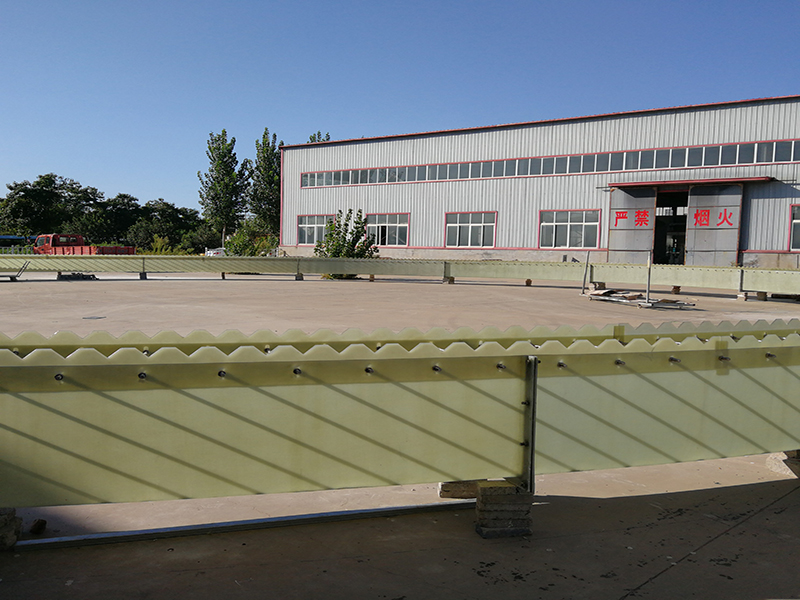fiberglass drum
The Versatility and Utility of Fiberglass Drums
In the world of industrial storage solutions, fiberglass drums have emerged as a superior alternative to traditional metal and plastic containers. Offering a unique blend of durability, chemical resistance, and lightweight design, fiberglass drums are becoming increasingly popular across various sectors, including chemicals, food and beverage, and pharmaceuticals. This article explores the characteristics, advantages, applications, and future of fiberglass drums in the market.
Characteristics of Fiberglass Drums
Fiberglass drums are composed of a composite material that combines glass fibers and resin, resulting in a structure that is robust yet lightweight. This composition gives them strength and resilience, making them ideal for the safe storage and transport of hazardous and non-hazardous materials alike. Unlike metal drums, fiberglass does not corrode or rust, significantly extending the lifespan of the container. Additionally, these drums are manufactured in a range of sizes, typically from 5 gallons to 55 gallons, catering to a variety of storage needs.
The non-reactive nature of fiberglass makes these drums particularly suited for storing chemicals, solvents, and corrosive substances. Their smooth, impermeable surface helps prevent contamination, making them a preferred choice for industries that prioritize hygiene and safety.
Advantages of Fiberglass Drums
1. Chemical Resistance One of the standout features of fiberglass drums is their exceptional resistance to a wide range of chemicals. This resilience makes them ideal for storing caustic and corrosive materials without the risk of degradation.
2. Lightweight Design Compared to metal drums, fiberglass drums are significantly lighter. This feature not only makes transportation easier but also reduces shipping costs and the potential for manual handling injuries.
3. Durability Fiberglass drums are built to withstand extreme temperatures and environmental conditions. Their structural integrity is maintained whether exposed to heat, cold, or moisture, making them suitable for outdoor storage applications.
fiberglass drum

4. Low Maintenance The non-porous surface of fiberglass drums resists staining and is easy to clean, requiring minimal upkeep. This characteristic is particularly important in industries where hygiene is critical.
5. Recyclability With growing environmental concerns, the recyclable nature of fiberglass presents a sustainable advantage. Once they reach the end of their life cycle, fiberglass drums can be repurposed, reducing landfill contributions.
Applications of Fiberglass Drums
Fiberglass drums find application across multiple industries due to their versatility. In the chemical industry, they are used for storing liquid chemicals, paints, and adhesives, ensuring safe transportation without contamination. In the food and beverage sector, these drums serve as storage solutions for bulk liquids, maintaining the quality and safety of the contents.
Pharmaceuticals also benefit from the use of fiberglass drums, ensuring that sensitive materials are safeguarded throughout their transport and storage. The healthcare sector, with its strict regulations regarding contamination, often relies on the non-reactive nature of fiberglass.
Additionally, fiberglass drums have found their place in the oil and gas industry, where they are used to store chemicals needed for drilling and processing. Their robustness and resistance to various substances make them ideal for harsh environments.
Future of Fiberglass Drums
As industries continue to innovate and evolve, the demand for efficient and reliable storage solutions will grow. The use of fiberglass drums is anticipated to increase due to their favorable properties, particularly in sectors that seek to improve sustainability. Manufacturers are also increasingly focusing on creating customized solutions that cater to specific industry needs, integrating advanced technologies such as smart sensors for tracking contents and conditions.
In conclusion, fiberglass drums represent an important evolution in industrial storage solutions. Their advantages, such as chemical resistance, lightweight nature, and low maintenance requirements, make them ideal for a wide array of applications. As industries continue to prioritize safety, efficiency, and environmental sustainability, the future of fiberglass drums appears promising, paving the way for their broader adoption in various sectors around the globe. With ongoing advancements in materials technology, we can expect even more innovative solutions that leverage the strengths of fiberglass, ensuring these drums remain a vital component of industrial logistics for years to come.
Latest news
-
Oblate Tanks: Space-Saving, Durable Liquid Storage SolutionsNewsAug.27,2025
-
High-Performance Piping System Solutions for Industry & Commercial UseNewsAug.26,2025
-
Precision Fittings: Durable & Reliable Industrial & Plumbing SolutionsNewsAug.25,2025
-
Practical Steps: Unlock Success with Our Proven GuidesNewsAug.24,2025
-
Transport Tanks: Safe, Durable & Efficient Liquid HaulingNewsAug.23,2025
-
High-Quality Piping Systems for Efficient Flow & DurabilityNewsAug.22,2025











